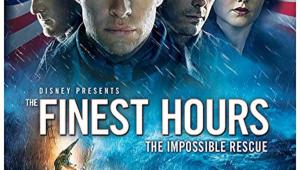Barry Willis Remembers Randy Tomlinson

It's been a week since our friend Randy Tomlinson was killed in a plane crash. It's been a few days since I got the call from Shane Buettner delivering the news: "I hate to be the one to tell you . . ." His words still echo. It seems unbelievable that a guy so full of life and with so much left to give has been snatched away.
Yet his abrupt departure is somehow fitting, something we might have expected. He swore after dealing with his father's incurable brain tumor and the one that took our dear friend Chris Keeler that he would never linger in a hospital. He wanted to live life in its utmost intensity, right up to the final moment. He got that wish.
Randy was a complex guy, a bundle of contradictions. Politically, he was in far right field, of the Fox News/Hilary-Clinton-is-the-Antichrist school. "Liberal conspiracy" delivered under his breath in his South Carolina drawl was the stuff of Saturday Night Live sketch comedy. Yet he accepted individuals with all their idiosyncrasies in full bloom—the forthright out-of-the-closet dignity of our friend Chris, or the flamboyant eccentricity of engineer James Bongiorno, Randy's personal audio guru, with whom he argued incessantly. Randy was engaged in an ongoing unfinished quest to create the ultimate Ampzilla, a Bongiorno product from the '70s that became for Randy one of many perfectionist obsessions.
In his view, nothing ever came from the factory fully realized. After enormous research, he would decide on a new pair of loudspeakers, and after buying them through one of many deep-discount inside connections, soon have them completely dismantled for re-engineering. In the last such project he discussed with me, he had reworked a pair of Kevin Voecks' Revel speakers, managing to make them "sing like angels."
His perfectionism made him distrust authorities and experts—in a dismissive rather than paranoid sense. Randy didn't suffer fools gladly. He believed that anything worth doing was worth doing right, worth doing all the way. The world continued to disappoint him with slackers. He could count on one hand the number of mechanics and technicians he trusted. (I was pleased to know I'd made the cut. When he was doing a lot of pro sound work, I was one of only three people he trusted to work on his turntables, mixing boards, and power amps.) He did almost all his own mechanical and electronic and computer work, because no one else did it right. He had an innocuous-looking Volkswagen pickup truck that he used for work and daily driving, which he'd also tricked out for weekend racing during long Georgia summers. He took enormous delight in "dusting yuppies in their Porches and BMWs" with his stealth toy truck even if it meant rebuilding the engine after every race.
Then there was the Corvette. It appeared in his driveway one day, the result of some mysterious trade, neither recent enough to be considered new nor old enough to be a classic, just a big hunk of Detroit horsepower that had been driven hard enough to have developed a few rattles. Randy insisted that he was going to race the thing, despite its known preference for wide-open straightaways rather than hairpin turns. One night after a long hi-fi session and plenty of wine and other inebriants—we often joked that the real hi-fi story wasn't about what you put into your system, but what you put into yourself—we took the 'vette for a spin. I became simultaneously aware of what an intensely competent driver he was and of how little protection fiberglass offers against bridge abutments, trees and telephone poles.
His garage was—is, as far as I know—full of trophies from motocross racing, hundreds of them covering a career that spanned three decades. A lifelong athlete—he claimed to own the all-time record in the obstacle course at the Citadel, where he was an English major—he began to feel the encroachment of time in his aching joints and in races lost to younger riders. He took up mountain biking and bodybuilding as conditioning for motocross, and soon was as fully immersed in those pursuits as he was in cars, motorcycles, hi-fi, video, and computers. The ultimate gearhead! I would meet him to go riding near the Chattahoochee river, where he would hammer up hills at a pace that set my lungs afire, then tackle downhill runs with adolescent abandon, heedless of branches and exposed roots and sharp rocks.
"I'm hooked on anything that goes," he said. "That's my weakness."
Randy was notoriously cheap, but generous to his own detriment. He was famous for his refusal to pay Las Vegas hotel prices during the Consumer Electronics Show, where for years he insisted on staying at a youth hostel, far beyond passing as a youth. Paying retail grieved him. When he took up mountain biking, he became a Jamis dealer so that he could buy his bikes wholesale. He found ways to make his hobbies pay for themselves. His garage was a one-man factory where he built custom shock absorbers for other motocross racers, engineered to their body weights and riding styles. In an adjacent room he tweaked disc players and amplifiers. The upper floor of his house was crammed with review gear flat-panel and rear-projection TVs, few of which won his unqualified approval.
His perfectionism made everything he touched something special and desirable. His modified JVC compact disc players are still sought by audiophiles as some of the best sounding ever. He bitched and groaned about how much time he spent making everything perfect and how he could never charge enough, but being too kind, was always reluctant to ask for payment. Friends took advantage of his expertise, knowing that he'd work for days if need be. I admit that I benefited too—he spent weeks rebuilding a big Suzuki cruiser I bought on a whim, charging me only for out-of-pocket expenses like having it painted. When he was done that motorcycle looked like new and ran like a precision Swiss sewing machine. He helped me design and install an overbuilt disco-level sound system for the new Georgia Tech Strength Center and took only a 10% markup on the equipment. He did major work on my SUV before I left Georgia for California, a gift for good luck.
I'm probably one of dozens of friends who were blessed by Randy's talents and largesse. Most of them I never met because he kept his interests compartmentalized. In fact, I probably knew him better than most because we had so many overlapping interests. There was so much about him that remained private—especially his relations with women, of whom one reputedly had once threatened marriage. While browsing through his books, I came across a first edition by Pat Conroy, a Citadel classmate. Inscribed inside: "To Randy, who was always better than I was." I'll always feel that way too, especially after the heroic care that Randy gave Chris Keeler during his last months. Randy was stoic about expressing it, but magnanimous about sharing his love.
Randy paid meticulous attention to diet and exercise and all health matters—he chided Tom Norton for his elevated cholesterol levels—but went for high-risk sports like there was no tomorrow. Last Saturday, that proved true. In February 2001, after NASCAR champion Dale Earnhardt was killed in a race, there was an outcry for more safety regulations, for a crackdown on risk. Car and Driver editor-at-large Brock Yates wrote a splendid response in the Wall Street Journal, in which he asked: who among us is lucky enough to make a painless exit doing what he loves?
Randy Tomlinson was lucky enough to do that. I only hope that he was lucky enough to be knocked unconscious before the little plane exploded in flames. No one will ever know. I do know that I'll always regret that I'll never again tumble into his guest bed after a late late night, that I'll never again hopelessly chase him on one of those blistering bike rides, that I'll never again get to sit across the table and chuckle while he rants about the stupidity epidemic. I loved the guy in all his quirkiness and obstinacy, in all his opinionated obsessive brilliance. I'll miss him every day for the rest of my life.
- Log in or register to post comments































































